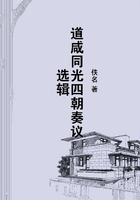"And really," said she, "why disturb things? for, go where I will, I see no such Paradise as these two villages.""They are indeed lovely," said Uxmoor; "but my own village is very pretty. Yet on nearer inspection I have found so many defects, especially in the internal arrangements of the cottages, that I am always glad to hear of a new eye having come to bear on any village.""I know you are very good," said Zoe, "and wish all the poor people about you to be as healthy and as happy as possible.""I really do," said, warmly. "I often think of the strange inequality in the lot of men. Living in the country, I see around me hundreds of men who are by nature as worthy as I am, or thereabouts. Yet they must toil and labor, and indeed fight, for bare food and clothing, all their lives, and worse off at the close of their long labor. That is what grieves me to the heart. All this time I revel in plenty and luxuries--not forgetting the luxury of luxuries, the delight of giving to those who need and deserve. What have I done for all this? I have been born of the right parents. My merit, then, is the accident of an accident. But having done nothing meritorious before I was born, surely I ought to begin afterward. I think a man born to wealth ought to doubt his moral title to it, and ought to set to work to prove it--ought to set himself to repair the injustice of fortune by which he profits. Yes, such a man should be a sort of human sunshine, and diffuse blessings all round him. The poor man that encounters him ought to bless the accident. But there, I am not eloquent. You know how much more I mean than I can say.""Indeed I do," said Zoe, "and I honor you.""Ah, Miss Vizard," said Uxmoor, "that is more than I can ever deserve.""You are praising me at your own expense," said Zoe. "Well, then," said she, sweetly, "please accept my sympathy. It is so rare to find a gentleman of your age thinking so little of himself and so much of poor people. Yet that is a Divine command. But somehow we forget our religion out of church--most of us. I am sure I do, for one."This conversation brought them to the village, and there they met Vizard, and Zoe repeated old Sally's discourse to him word for word. He shook his head solemnly, and said he shared her misgivings. "We have caught a Tartar."On arriving at Vizard Court, they found Miss Gale had called and left two cards.
Open rivalry having now commenced between Uxmoor and Severne, his lordship was adroit enough to contrive that the drag should be in request next day.
Then Severne got Fanny to convey a note to Zoe, imploring her to open her bedroom window and say good-night to him the last. "For," said he, "Ihave no coach and four, and I am very unhappy."This and his staying sullenly at home spoiled Zoe's ride, and she was cool to Uxmoor, and spoiled his drive.
At night Zoe peeped through the curtain and saw Severne standing in the moonlight. She drank him in for some time in silence, then softly opened her window and looked out. He took a step nearer.
She said, very softly and tenderly, "You are very naughty, and very foolish. Go to bed _di-_rectly." And she closed her window with a valiant slam; then sat down and sighed.
Same game next day. Uxmoor driving, Zoe wonderfully polite, but chill, because he was separating her and Severne. At night, Severne on the wet grass, and Zoe remonstrating severely, but not sincerely, and closing the window peremptorily she would have liked to keep open half the night.
It has often been remarked that great things arise out of small things, and sometimes, when in full motion, depend on small things. History offers brilliant examples upon its large stage. Fiction has imitated history in _un verre d'eau_ and other compositions. To these examples, real or feigned, I am now about to add one; and the curious reader may, if he thinks it worth while, note the various ramifications at home and abroad of a seemingly trivial incident.
They were all seated at luncheon, when a servant came in with a salver, and said, "A gentleman to see you, sir." He presented his salver with a card upon it. Severne clutched the card, and jumped up, reddening.
"Show him in here," said the hospitable Vizard.
"No, no," cried Severne, rather nervously; "it is my lawyer on a little private business."Vizard told the servant to show the visitor into the library, and take in the Madeira and some biscuits.
"It is about a lease," said Ned Severne, and went out rather hurriedly.
"La!" said Fanny, "what a curious name--Poikilus. And what does S. I.
mean, I wonder?"
"This is enigmatical discourse," said Vizard, dryly. "Please explain.""Why, the card had Poikilus on it."
"You are very inquisitive," said Zoe, coloring.
"No more than my neighbors. But the man put his salver right between our noses, and how could I help seeing Poikilus in large letters, and S. I.
in little ones up in the corner?"
Said Vizard, "The female eye is naturally swift. She couldn't help seeing all that in _half a minute of time;_ for Ned Severne snatched up the card with vast expedition.""I saw that too," said Fanny, defiantly.















